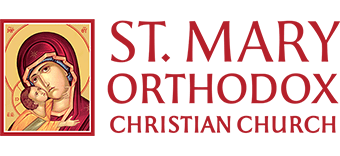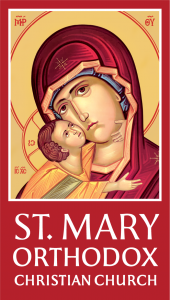Who Sinned, This Man or His Parents?
~By Metropolitan Saba (Isper)
In the story of the man blind from his birth (John 9:1-38), we see a profound gesture.
Following the Jewish religious concept, which directly linked physical illness to sin, the disciples asked the Master: “Teacher, who sinned, this man or his parents, that he was born blind?”
Jesus replied: “Neither this man sinned, nor did his parents,” rejecting in his answer a direct relationship between physical illness and sin. Illness is not a punishment for a sin, and not every illness is linked to a specific personal sin. Illness, like other problems in our fallen world, is a result of man’s fall from paradise. Sin prevails over humans after the fall of the first two ancestors. In the world of sin, all evils emerge, including diseases, epidemics, and infirmities.
There is a significant difference between considering illness as a direct result of a specific sin, and the way we deal with it. People can approach their illness in a spiritual and faithful manner, which can bear spiritual fruit, leading to their growth and salvation. Alternatively, they can approach it with complaints, blasphemy, and depression, thereby making it a spiritual illness as well. Believers accept their illness with humility and joy, placing their life in God’s hands and using it to grow in patience, endurance, meekness, and liberation from worldly matters that hindered their sought-after freedom.
Christ’s answer to the disciples sufficed with one brief phrase, according to the gospel: “Neither this man sinned, nor did his parents.” The Teacher rejects linking blindness with the sins of the blind man and his parents. In order to elevate the mentality of the disciples (for previously, it had not benefitted the blind man), He continues His answer with the next phrase, and says that this man was born blind so that “the works of God might be made manifest in him. I must work the works of Him who sent Me, while it is day.”
God’s power appeared through this blind man’s miraculous healing at the hands of Christ. But Christ’s answer contained a broader meaning. In some translations, we hear Jesus using the collective phrase, “We must work.” We, Christ’s disciples, must continue to work according to His guidance and through Him, so that God’s power remains visible and “at work” in our world.
What would we gain if we knew of a spiritual reason behind the blindness of this man, or any other patient? At best, we would only speculate or gossip, while the sufferer remains in his suffering. Christ elevated the mentality from the level of mere knowledge – again, which was not helping the patient – to a higher level that did help him. It is as if He is saying to the disciples, and through them to every Christian: It is better for you to alleviate the suffering of the sufferer and the ill from his illness, and not to question him. This is how God’s power appears and works in you. The Lord’s answer is a shift from intellectual theorizing to an actual and practical outpouring of God’s grace and mercy.
As long as He is with us, we are in the daylight, and we have a duty to pursue “the works of Him Who sent Me,” that is, the works of true life.
God’s works appear in Christians who faithfully bear this responsibility for making God’s power tangible in this world. They are responsible for demonstrating God’s mercy and everlasting love for humanity. That is why He commanded His disciples – and everyone who believes in Him is His disciple – when He told them: “Preach the gospel to all nations,” and, “The kingdom of heaven is at hand,” and, “Heal the sick.” The first sign that revealed that His kingdom is at hand is the healing of the sick in every sense of the word – physical, psychological and spiritual – from their despair, depression, sadness, isolation and despondency.
As long as He is with us, we are in the daytime, and there is no darkness at all. He wants our hearts to be perfected in His love, our hands to offer His gifts, our tongues to carry His words of comfort and hope, and our feet to transport His works of love to every place. He wants us to be true disciples who, through Him and Him alone, make the world perpetually bright, despite the gloom and darkness in it.
A theologian of the previous century said: “The problem isn’t that there are few saints, but that not all Christians are saints.”
Christ ended His answer to the disciples, before giving sight to the blind man, with the following sentence: “I am the light of the world, as long as I am in the world.” If Christians truly believe that they are members of the body of Christ, then Christ is always present and active in them and through them, and subsequently always
present in the world. Because of them, the world glorifies God, and God glorifies the world. How awesome is our responsibility! How vigilant we must be, so that we become pure vessels that preserve God’s work in the world! Only then, will our spiritual insight be awakened and alert, and His light will illuminate our tortured world, awaiting His complete dominion over it on the last day.
O Lord, we know that You have placed Your treasure in our earthen vessels, which quickly become perishable, and we realize that with Your transcendent love for humanity, You want us to be transcendent vessels for You (2 Cor. 4:7), deriving their durability from Your grace, and reflecting Your light wherever they are found. Do not look at our fragility, O Lord, but rather grant us confidence and strength to work in the world and return it to You. We do not deserve Your blessings, O our good God, nor your infinite goodness. Rather, do not turn Your face away from Your creation, for You taught us that You are greater than us in ways we cannot imagine. Fill us with Your presence, so Your light may shine upon our world and remain in the daylight as long as You are in it. Amen.
Originally published May 25, 2015.



